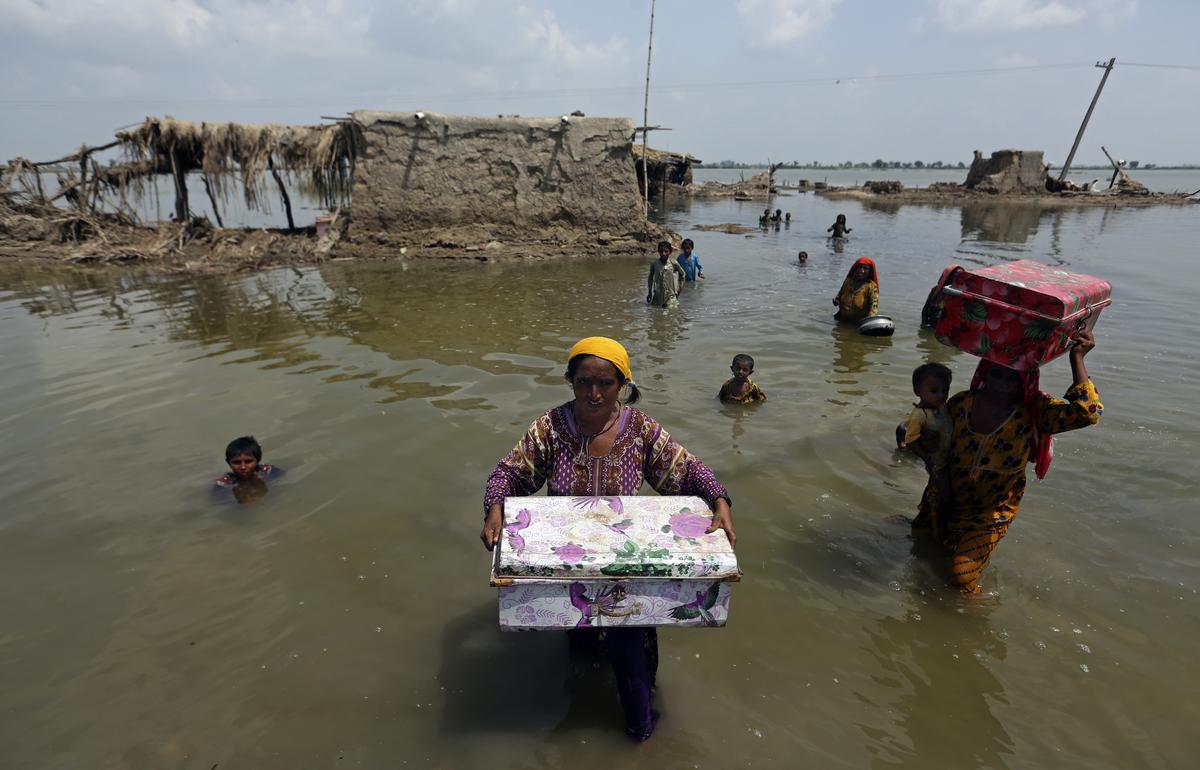The humanitarian agency of the United Nations has warned that about 5.7 victims of the Pakistan floods will face a serious food crisis in the next three months.
Pakistan recently faced heavy floods from the deluge that has killed and taken away the shelter of many people.
Pakistan’s National Disaster Management Authority reported that floods fueled by abnormally heavy monsoon rains have killed 1,695 people, affected 33 million, damaged more than 2 million homes and displaced hundreds of thousands now living in tents or makeshift homes.
The latest reports on Saturday by the U.N. Office for the Coordination of Humanitarian Affairs said that the current floods will worsen the food crisis between September and November.
According to the World Health Organisation, 16% of the country’s population was living in moderate or severe food insecurity.
However, the government has a different take on the issue. The govt is insisting that there is no immediate worry about food supplies as the grain stocks are enough to last through the next harvest and the govt is importing more.
The U.N. agency and other partners have scaled up their flood response and delivered help to 1.6 million people affected by the deluge.
The U.N. is due to issue a revised appeal seeking an additional $800 million from the international community to respond to the soaring life-saving needs of Pakistani flood survivors. The U.N. said last week that “food is being delivered to vulnerable families; however, it is still not enough to meet the nutrition needs of the people.”























